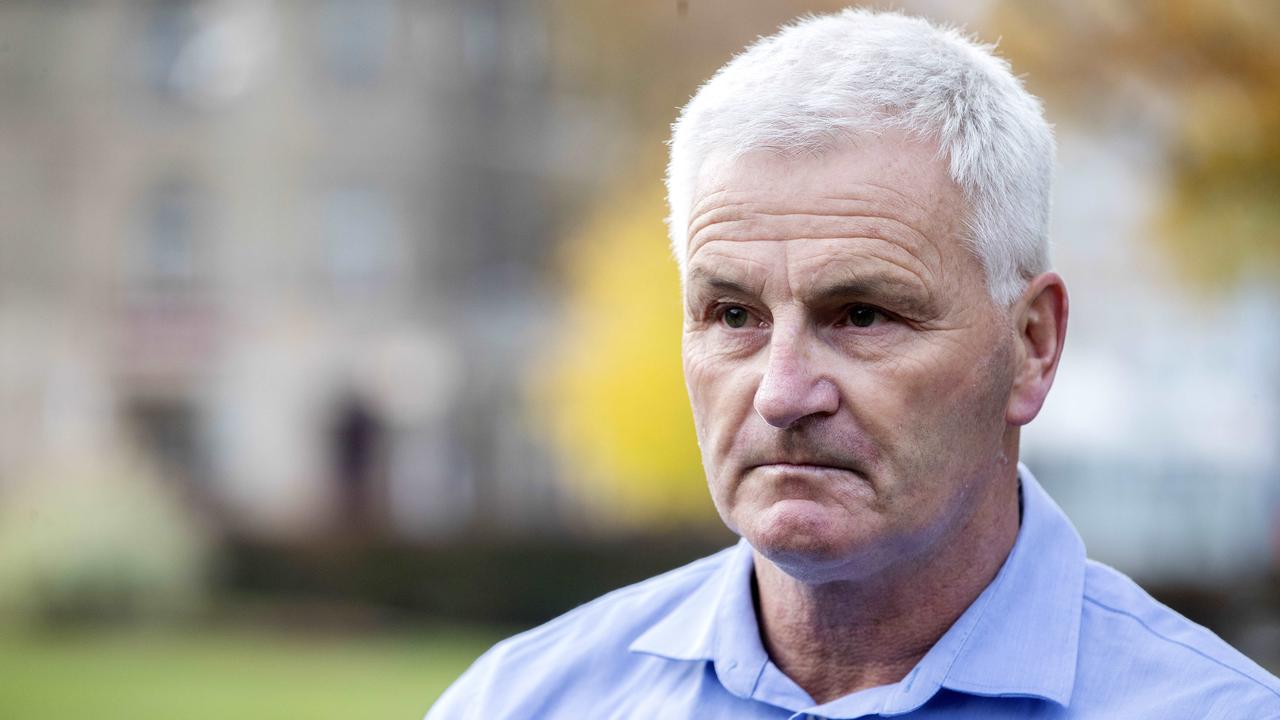Special report: Woman’s pain from COVID loss lingers one year on
This week marked one year since Tasmania’s first death from COVID-19 and while the state is regarded as one of the safest places in the world, it was not immune from the devastating virus.
Coronavirus
Don't miss out on the headlines from Coronavirus. Followed categories will be added to My News.
- Tasmania records its first coronavirus death
- Aussie paramedic working in London warns of out of control virus
FOR Maureen Dawes, the painful memories of losing her partner of almost three decades to COVID-19 regularly brings her to tears.
Mrs Dawes and Len Fisher spent 11 days on the infamous Ruby Princess cruise ship sailing around the coast of New Zealand with 2700 other passengers in March last year.
Mr Fisher became sick and was diagnosed after the couple returned to Tasmania and he died in the Royal Hobart Hospital on March 30.
Mr Fisher, a retired bus depot manager, was aged 81.
Tuesday marked exactly one year since his death.
“I was teary. It’s upsetting and I really miss him,” Mrs Dawes, 78, told the Mercury.
“I get sad. But you can’t change things.”

Mrs Dawes was in self-isolation at the time but she was given permission to visit him because doctors knew the end was near.
She had to wear personal protective equipment including a mask, gloves and a gown.
“When I walked in, he gave me such a wonderful smile and he said ‘what a lovely surprise’,” she recalled.
Mrs Dawes said she and Mr Fisher had a great time on the cruise, but in hindsight believed it should not have been allowed to proceed.
“We shouldn’t have got on that ship that day,” she said.
“It should never have happened.”
An investigation into a COVID-19 outbreak at Burnie’s North West Regional Hospital found the Ruby Princess was likely ground zero for the cluster.
Hospital staff infected through treating two returned and infected passengers then passed on the virus to other staff and patients.
A report into the outbreak said health care staff continued to work at the hospital despite showing respiratory symptoms.

Australian Medical Association Tasmanian president Helen McArdle said many lessons were learned due to the cluster and the state had since handled the pandemic well.
Dr McArdle said restrictions on nursing homes and hospitals had been strengthened, which helped to protect the older population who were most vulnerable to the virus.
“I think we’ve done pretty well. We’ve been lucky because we’re an island and probably the simplest and most effective mechanism was closing the borders,’’ she said.
“That meant we could not admit COVID. We had some cases, but very few.”

Dr McArdle said the most important lesson from the Burnie outbreak was realising how infectious the virus was.
“It also highlighted the importance of social distancing, hand hygiene, avoiding congregations of groups of people, particularly in small rooms, and the importance of personal protective equipment,” she said.
She said the latest cluster in Queensland — and the large-scale outbreak in Victoria — was a reminder that the threat to Tasmania remained.
“It’s going to take probably until about Christmas before the vaccine is fully rolled out,” she said.
“I think we’re taking all the precautions, but we just have to constantly reinforce the messages about social distancing, hand hygiene, and so on.”

Dr McArdle said it would be devastating if another outbreak and potential deaths occurred in Tasmania.
“It would be dreadful, because there’s a public confidence component as well,” she said.
“A lot of elderly people have hidden away for most of last year.
“They’ve avoided healthcare, avoided things that they are dealing with and become socially isolated.
“If we had another significant outbreak, that would happen again and we also need to consider the impact on the health system, which would be significant.”
She believed the health system could cope if it did happen, but it would only be possible if elective surgeries and other elective activities were cancelled.

The state’s handling of the coronavirus pandemic has become an election issue, with Premier Peter Gutwein’s main pitch to the voters around keeping Tasmanians safe.
Tasmania’s last recorded cases of coronavirus were in early December, with three detections among travellers on a repatriation flight that landed in Hobart from India.
It broke a run of 120 days since the state recorded a case of COVID-19.
COVID DEATHS
Victoria - 820
NSW - 54
Tasmania - 13
WA - 9
Qld - 6
SA - 4
ACT - 3
NT - 0



